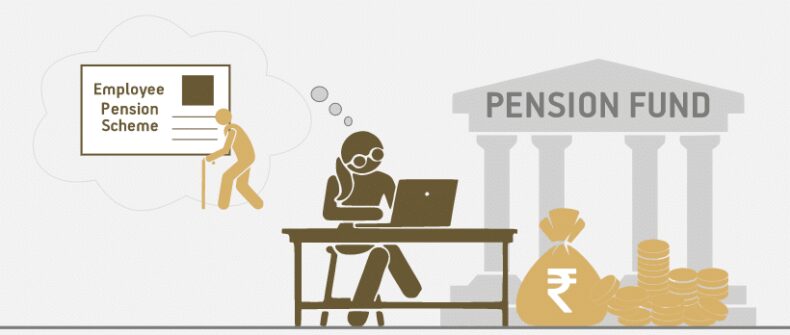In a relief to several public servants, the Supreme Court has provided more time to join the Employees’ Pension Scheme by upholding the Employees Provident Scheme of the Employees Provident Fund Organisation (EPFO) as “legal and valid”.
The Supreme Court Order on Employees’ Pension Scheme
The order of apex court came in response to the appeals filed by Employees Pension Provident Fund Organisation and the Central Government challenging the Kerela, Rajasthan and Delhi High court judgments which had quashed 2014(Amendment) Scheme. Most importantly, the court made use of its extraordinary authority granted by Article 142 of the Constitution to grant eligible workers who hadn’t chosen enhanced pension coverage before the 2014 amendments the opportunity to do so in conjunction with their employers within the following four months.
2014 Amendment Overturned

The supreme court overturned a 2014 amendment that mandated that employees who earn more than the cap of $15,000 per month must make monthly contributions to the pension plan equal to 1.16% of their earnings. The Employees Provident Funds and Miscellaneous Provisions Act, 1952 is deemed to be violated by the necessity to make an additional contribution under the amendment plan equal to 1.16% of the wage to the extent that it exceeds 15,000 per month, held by bench led by Chief Justice U.U. Lalit.
The Court determined that employees who have not taken advantage of the opportunity to join the Employees Pension Scheme must be given a second chance of 4 months to do so, providing relief to numerous workers.
Article 142 Used by the Supreme Court to do Complete Justice
The supreme Court ruled that the employees who were eligible to join the pension plan but were unable to do so because they did not exercise their option by the cut-off date should be given another chance because the cut-off date was unclear in light of the High Court decisions invalidating the provisions of the Employee’s Pension (Amendment) Scheme, 2014.
As a result, the Court used its authority granted by Article 142 of the Constitution to extend the deadline. The Court further held as invalid the condition in the 2014 scheme that the employees are required to make a further contribution at the rate of 1.16% on the salary exceeding Rs.15,000/-. The Court determined that the EPF Act of 1952 was violated by the requirement to pay additional contributions on salaries that exceeded the threshold.
To allow the authorities to raise money, this portion of the ruling has been suspended for a period of six months. Furthermore, the Court said that it concurred with the ruling in R.C. Gupta v. Regional Provident Fund Commissioner, which stated that the dates listed in the pre-amended scheme for joining the scheme cannot be interpreted as deadlines.
Changes brought up by the 2014 Amendment

- Establishes a maximum monthly pensionable wage of Rs. 15,000. Prior to the amendment, even though the maximum pensionable salary was only Rs. 6,500 per month, the proviso to the aforementioned paragraph allowed an employee to receive a pension based on the actual salary that he was drawing as long as he had paid his contributions based on that salary and had made a joint request with his employer for that purpose.
- This amendment confers the right to propose a new choice together with their employer to continue making contributions on salaries that are higher than Rs. 15,000 per month on the current members as of 1.9.2014. When choosing this option, the employee would additionally be required to contribute at a rate of 1.16% on any salary above Rs. 15,000/-. This new option would need to be activated within six months starting on January 1, 2014.
- For pensionable service up to September 1, 2014, the maximum pensionable pay is Rs. 6,500 per month, and for the time beyond that, the maximum pensionable salary is Rs. 15,000 per month. This provision states that the monthly pension shall be determined on a pro rata basis.
- Allows for the benefits to be withdrawn if a member fails to perform the necessary eligible service.
Welcome Step & Clarity Needed
According to BMS National Secretary V. Radhakrishnan, the Supreme Court has not made a ruling on a number of matters relating to the minimum pension. This verdict is incomplete. Certain aspects in the verdict such as approving the EPFO’s argument that the average of last 60 months’ salary should be considered for calculating the pension are not good for the workers. But the verdict clearly declined to accept the EPFO’s argument that the worker will have to remit the Union government’s component of 1.16%. This is a welcome step. Our view is that this verdict needs more clarity from the court,” he said.
Read More: https://tdznkwjt9mxt6p1p8657.cleaver.live/pm-modi-launches-global-intiative-mission-life/













